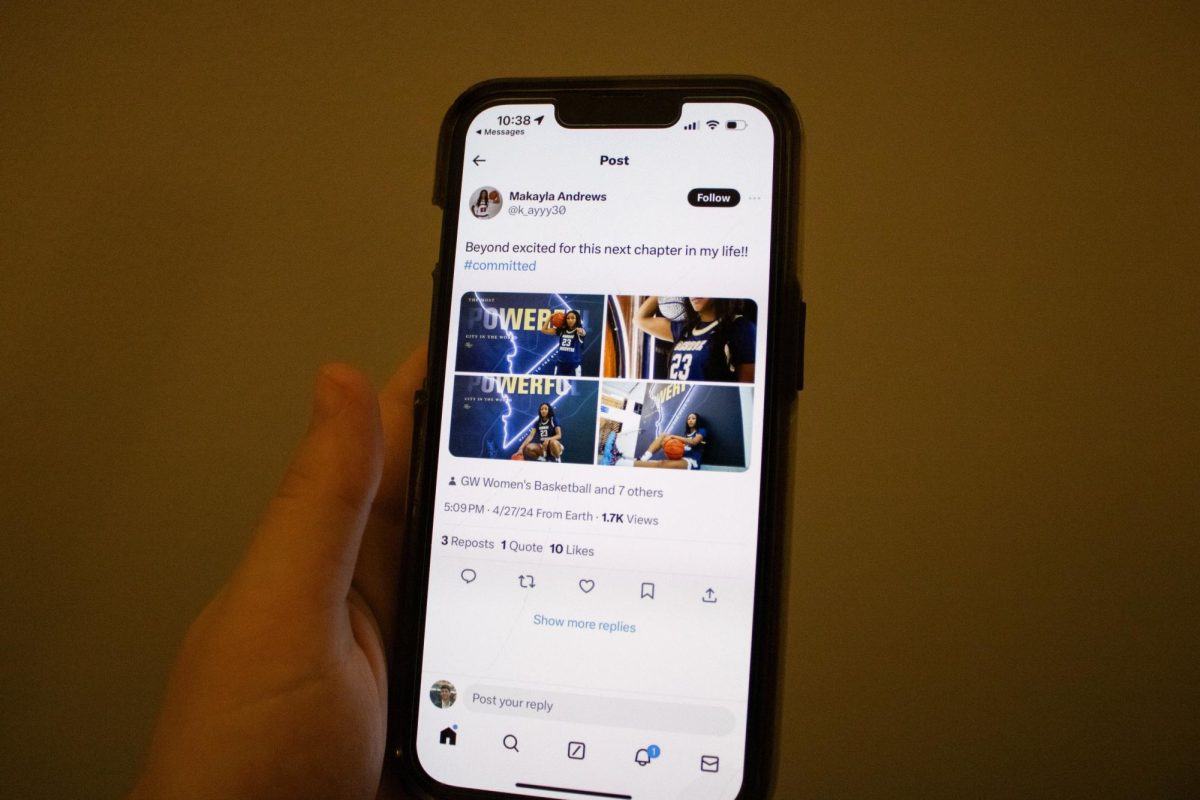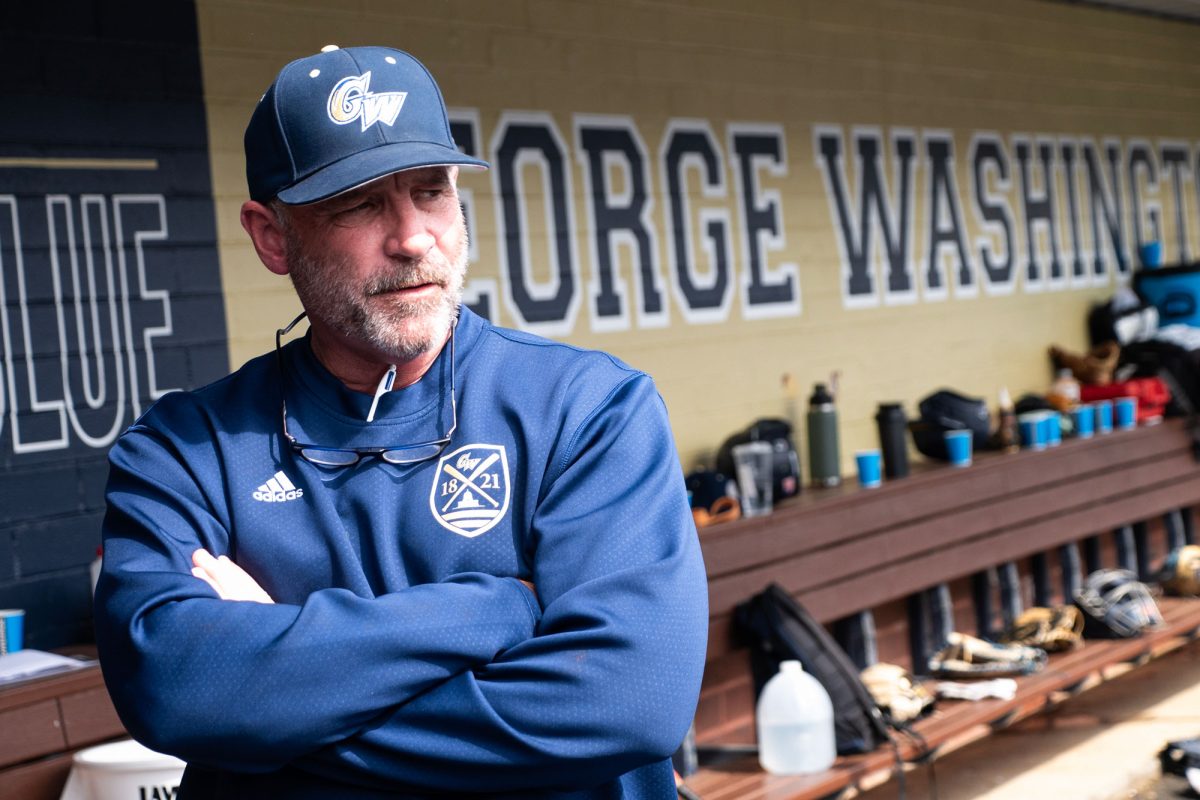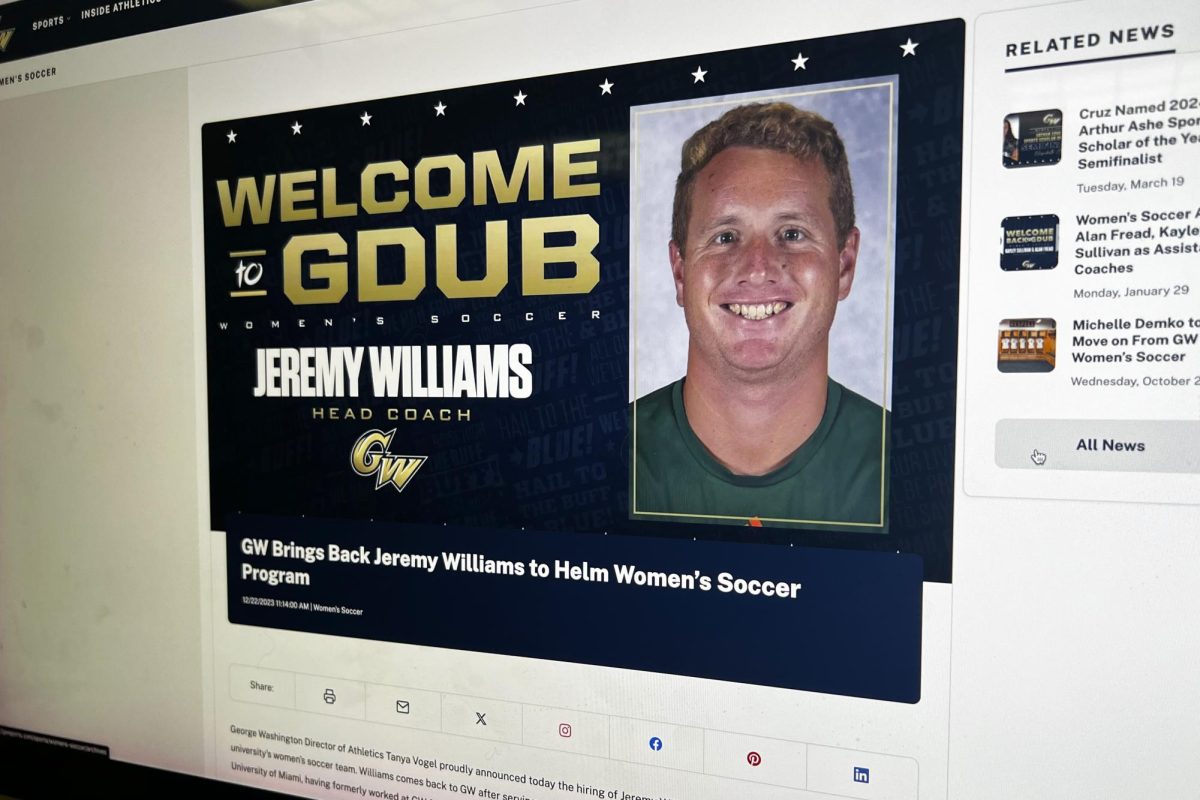Washington Post columnist Michael Wilbon led a discussion on topics ranging from Jackie Robinson’s rise into the major leagues to present day issues of race, money and equality in the sports world in a packed Marvin Center Grand Ballroom Tuesday night.
The evening’s program was the second event of “Jackie Robinson Week,” a week’s worth of events commemorating Jackie Robinson’s breaking of the Major League Baseball color barrier on April 15, 1947.
Wilbon, known best for his role on ESPN’s daily sports show, “Pardon the Interruption,” made a clear distinction between sports stars and heroes. Heroes, he said, are not just athletes who hit home runs in the ninth inning – their accomplishments must extend beyond the playing field.
“Heroes in sports are heroes because of what they endured and how it is they overcame the social injustices of their day,” Wilbon said.
He pointed out today’s star athletes cannot have the same effect on America’s social climate as athletes like Jackie Robinson because they are not in the same circumstances as Robinson or Muhammad Ali.
He said athletes like Martina Navratilova (an openly homosexual tennis player) and Casey Martin (a disabled golfer) are closer to modern day Robinson figures than Tiger Woods or Michael Jordan.
“It is ridiculous to think Tiger Woods could wake up with the same anger that Jackie Robinson did,” Wilbon said. “Why would Tiger Woods, who grew up in Orange County playing golf, wake up pissed off everyday?”
Though Wilbon started the night admitting he was too young to remember Robinson’s playing career, he experienced Robinson’s effect through his father, a man who did carry the same anger as Robinson did, he said.
Wilbon told how his father refused to attend games at Wrigley Field, in Chicago’s white North Side, for many years because stadium authorities turned him away at the gates when he attempted to see Robinson play in 1947.
Wilbon eventually did attend his first game at Wrigley with his father at nine years old and became a Cubs fan but never forgot the burden his father bore.
“You must not forget the past,” he said. “You must honor those who have made it possible for you and others to enjoy better lives.
“That it happened before I was born is not an excuse. It’s a shame when people don’t know who came before them.”
After a few stories, Wilbon answered questions from the audience on topics ranging from Jackie Robinson to the state of modern professional sports.
Among other opinions, Wilbon preached the need for minority representation in front offices and said he believes in some sort of financial compensation for college athletes. Wilbon said athletes today are not as dedicated to becoming great as athletes of the past were.
“It used to be, ‘If I’m great, I’ll be rich,'” Wilbon said. “Now it’s ‘I want to be large, I want to get coin.’ Greatness doesn’t enter in.”
Audience reaction to Wilbon’s discussion was overwhelmingly positive and a line of students quickly gathered in front of the columnist when the discussion ended.
“He offers great sociological perspectives on race and sports from the last half century,” sophomore Drew Ledbetter said.
Junior Ted Blumenthal agreed.
“I love PTI and I read his articles in the Post,” he said. “Jackie Robinson is one of the most monumental figures in sports history, and he’s very important to talk about.”







